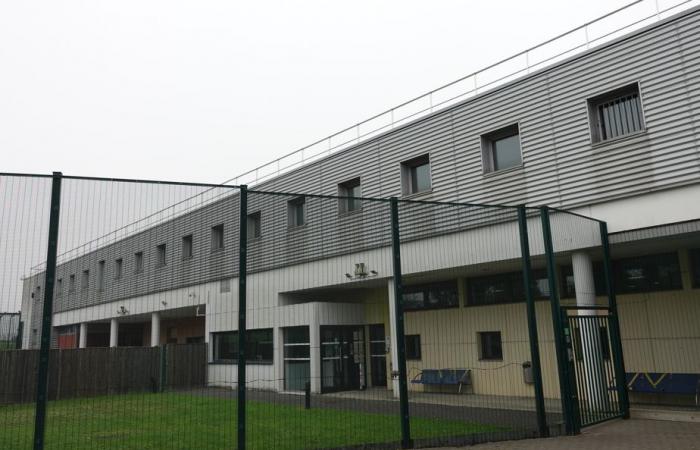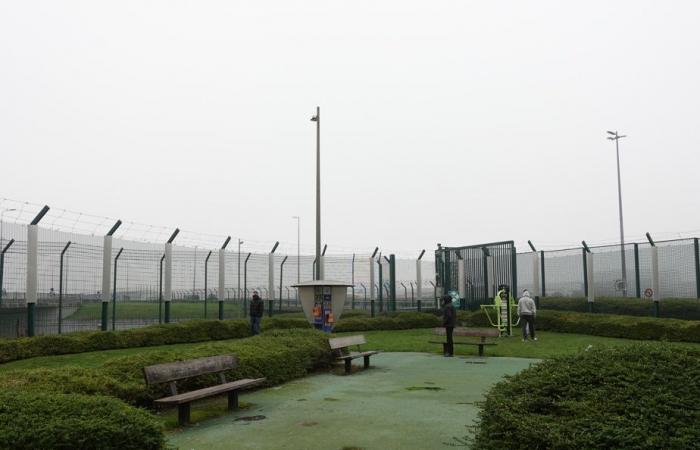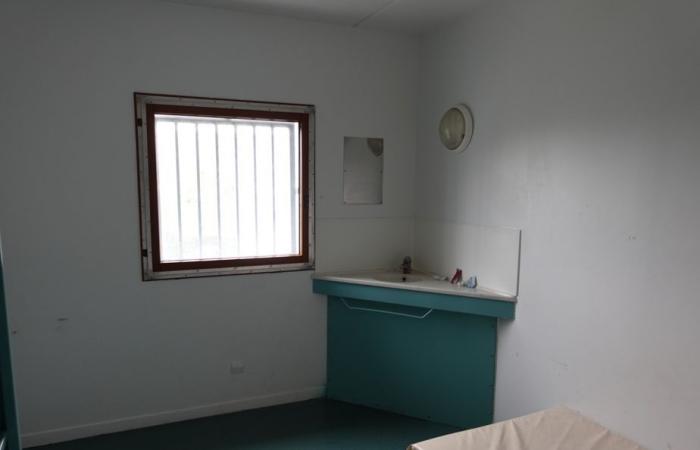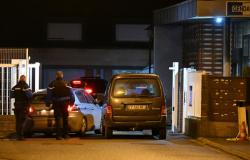Just next to the runways of Paris–Charles-de-Gaulle airport, a gray sheet metal building surrounded by fences bristling with surveillance cameras attracts little attention from passing travelers. They have no idea that it is, in administrative jargon, a “place of deprivation of liberty”.
Posted at 12:00 a.m.
Rafael Miro
Special collaboration
Welcome to the ZAPI (waiting zone for people in waiting) at Roissy airport. In this center people whose entry into French territory has been refused are incarcerated, while waiting for them to be sent home. With 150 seats, it is the largest in France, but there are ZAPIs of varying sizes in all the country’s airports.
“We must not say that it is a prison,” explains Commander Baptiste Potot, the police officer who supervised our visit. “Those kept are not confined to their cell, they are always free to move around the center, even at night, if they want to watch television. »
Up to 26 days detention
Many people who arrive here are simple tourists who have had a passport or visa problem. They often only stay a few hours before being sent back to their country of departure at the expense of their airline.
But in the ZAPI, we mainly come across people who are trying to enter French territory in order to apply for asylum. They are being held for up to 26 days, while they undergo a hearing in a nearby court for authorities to judge whether their request is credible.
PHOTO RAFAEL MIRÓ, COLLABORATION SPÉCIALE
The ZAPI in Roissy has a small secure courtyard so that those detained can go outside, a few dozen meters from the take-off runways of Paris-Charles de Gaulle airport.
“We find that the process is too hasty,” explains Charlène Cuartero Saez, coordinator of the only association that provides legal aid in ZAPI. “Unless they pay a lawyer, detainees do not have access to any legal advice before their hearing, except from our volunteers. » In 2023, the association supported 444 people who wanted to apply for asylum, 357 of whom were rejected.
When they have exhausted their appeals, migrants must take a plane back to their country of origin, otherwise they are deemed to have committed an offense and risk ending up in a real prison. Evictions sometimes go badly: the morning of the visit The Pressa young Chadian woman was crying on the stairs, hugging her two toddlers. “I was handcuffed to be put on the plane, in front of my children,” she sobbed, explaining that she wanted to join her husband in France. “I don’t want to go back. »
It is certain that there are difficult human situations. But the courts examined his request and it was refused. We apply the law.
Baptiste Potot, police commander
“Conditions hoteliers » ?
According to the law, those kept are supposed to benefit from “hotel conditions”. “But what we see is that it looks much more like a prison than a hotel,” says Charlène Cuartero Saez. She deplores that the right of detainees to communicate with the outside world is limited by the security measures imposed by the police. “Smartphones and computers are confiscated upon entry, and detainees do not have access to the internet except on a single public computer.”
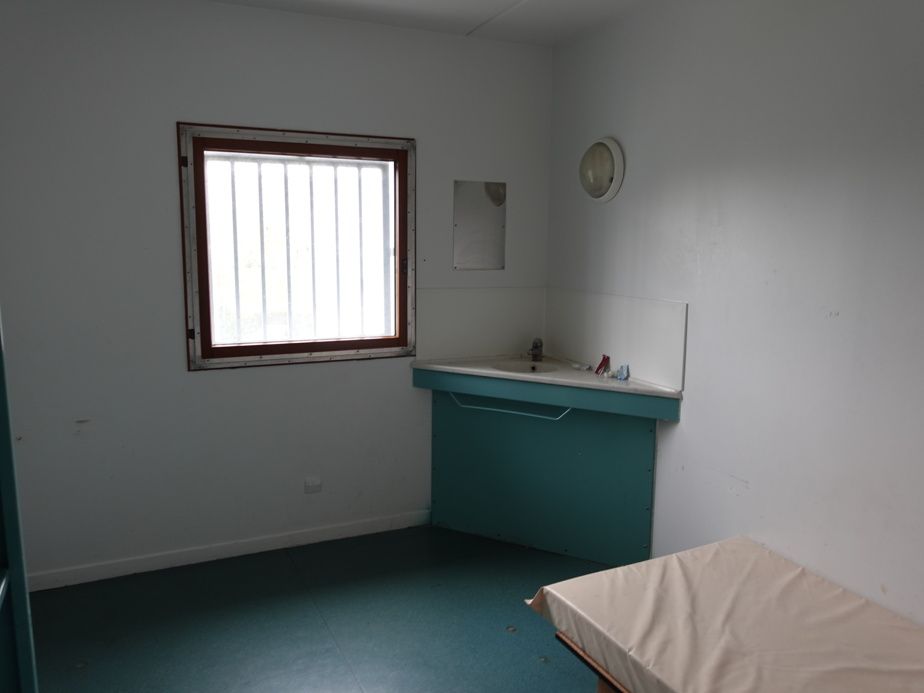
PHOTO RAFAEL MIRÓ, COLLABORATION SPÉCIALE
A typical room in the waiting area, shared by several inmates. It is impossible to open the windows, which are secured with bars.
The bedrooms are on the first floor. Those kept are housed there in groups of two or three, often strangers.
There is reportedly a serious bedbug problem affecting almost all of the rooms.
“Babies come to us covered in plaques, even if they only stay a few days,” explains Mireille, a nurse in the medical service, who will not give her last name as she is not authorized to speak with the media.
Because yes, there are children here. Those who arrive with their families remain under their supervision, while “unaccompanied minors” are housed apart from other detainees, in relaxed conditions. During the visit of The Press, two children of around twelve years old were alone in the ZAPI. “Of course it’s sad to keep them here, but it gives us time to protect them from smuggler networks,” comments Commander Potot.
And at Canada ?
After his visit to France in October, François Legault proposed creating waiting areas in Canadian airports, among other things to better distribute asylum seekers between the provinces. Federal Immigration Minister Marc Miller immediately dismissed the idea. Unlike France, it is possible in Canada to apply for asylum directly at the airport and to be admitted to Canadian territory, without going through detention.
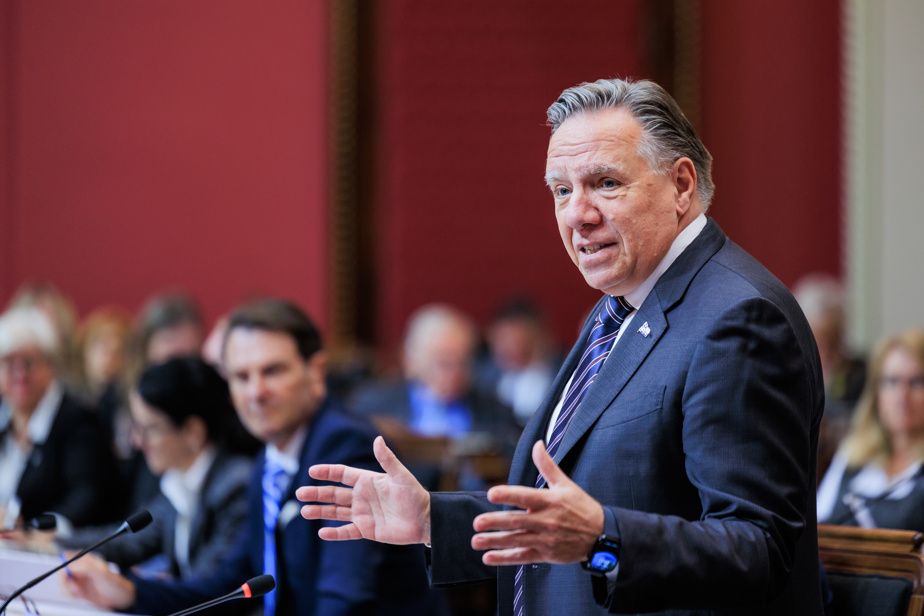
PHOTO EDOUARD PLANTE-FRÉCHETTE, LA PRESSE ARCHIVES
François Legault, Premier of Quebec
“In itself, it is not a bad thing to have waiting areas,” says socialist senator from Seine–Saint-Denis Corinne Narassiguin. It was she who made possible the visit of The Press by agreeing to accompany him, the ZAPI being in his constituency. “It makes it possible to manage people who cannot return to France while respecting a legal framework,” she believes. “We just have to be sure that the legal framework is respected. »

